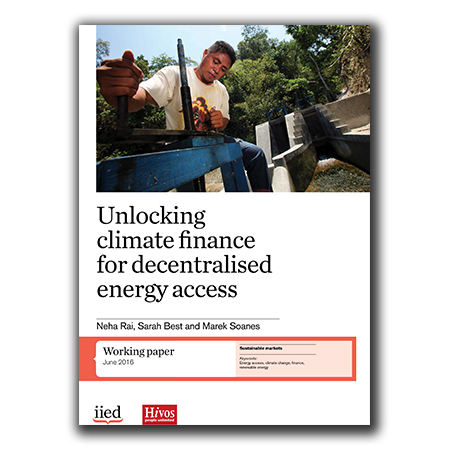Achieving energy access for everyone requires more and better targeted investment, but what role does climate finance play in filling the funding gaps? This paper examines data on the major climate funds to assess what share of international public finance goes toward energy access and compares this to overall finance needs for the sector. It highlights the flow of climate finance to decentralised energy, which is a key priority for achieving universal access, and identifies key funding blockers. The experiences from Bangladesh and Nepal provide lessons on how climate funds and national policy could be reformed so that climate funding is better targeted at decentralised energy access in low-income countries.








